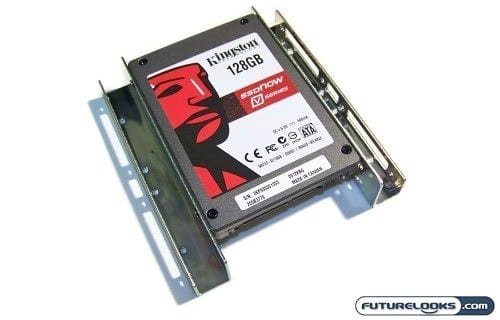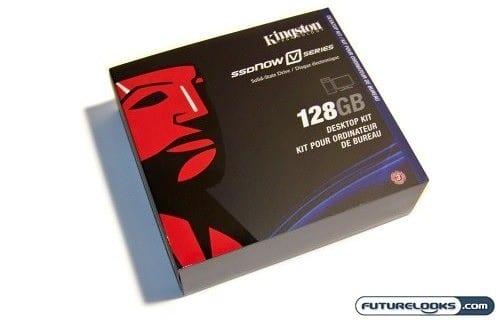Test Summary

Despite the rough start for early SSD drives and their problematic controllers, none of the stuttering issues were seen during the endless round of tests. All programs executed as required, files transferred properly. In fact, if anything, the V-Series Kingston was noticeably smoother compared to my very common Seagate Barracuda 7200.11 500GB Drive. In fact, in many of the tests, the Kingston bested its own specifications for read and write speeds.
The one issue that seems to remain is the low transfer rates on the smaller data blocks. However, without the graphs, I would not have noticed as the SSD completed every test and task much, much faster than the SATA II. With an access time of roughly 1ms at all times, it’s no wonder why it flies. Otherwise, depending on the I/O requests, the Seagate 7200.11 would sometimes require even more time compared to the Kinston SSDnow V-Series.
Final Thoughts and Concluson

So the question is, do we need a Kingston SSDnow V-Series…now? The answer to the question depends on what purpose an SSD fulfills. If you need the drive for a special purpose and performance, then even this value oriented 128GB model will suffice as your primary OS drive.
Ultimately, professional and power enthusiasts who have programs that can greatly benefit from SSD performance would be more than happy seeing their load times drop and productivity increase. This would also include laptop users who frequently travel for business since the V-Series doesn’t mind being tossed around and shaken. Not to mention, the battery life benefits of SSD can equate to a few more minutes of extra productivity on the road. I’ll even go out on a limb and say that professional gamers would find the durability and performance worth the cost.
Even now, some of the LAN party events are seeing a few SSDs in circulation. SSDs won’t improve your frame rates. But, there are some bragging rights as you sit in game waiting for everyone else still booting up or loading up the next map in your favourite FPS shooter. It’s also much easier to transport a case with much lighter weight SSD drives inside.
The downside to SSDs is still capacity versus cost. Again, the complete Kingston SSDnow V-Series 128GB bundle can be found for about $229. The larger 256GB size, when released, will probably cost you about twice that. The thing everyone would like to see is more NAND readily available whether it be new or current providers. We do expect prices to continue dropping as we approach the end of the year.
At a modest size, the Kingston 128GB V-Series Solid State Drive will serve you best hosting your Operating System and the bulk of the programs of your choice for quick boot and fast access times. Your aging SATA II hard drive would best compliment the SSD in a backup capacity or file storage capacity.
The Kingston SSDnow V-Series SSDs will definitely add some new found speed and spirit to your current system configuration. The inclusion of a complete instatllation bundle as well as a competitive pricepoint make this drive a great value for a truly plug and play experience.
Pros
- Faster sustained performance than hard drives
- Perfectly silent during operations
- 1ms response times
- Lighter, far more compact than hard drives
- Twice as many fit in a case
- Great for laptops
- Best value for cost
Cons
- Limited capacities for the cost
- Could use matching brackets
- Slower than SATA II on small data blocks
Overall Rating: 8.5 / 10.0


Discuss This Review in the Futurelooks Community Forums
